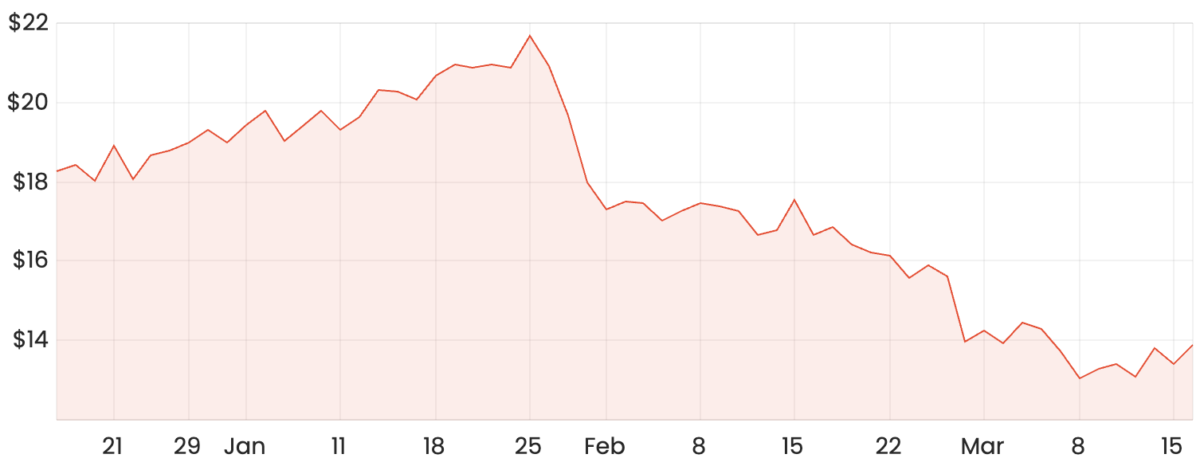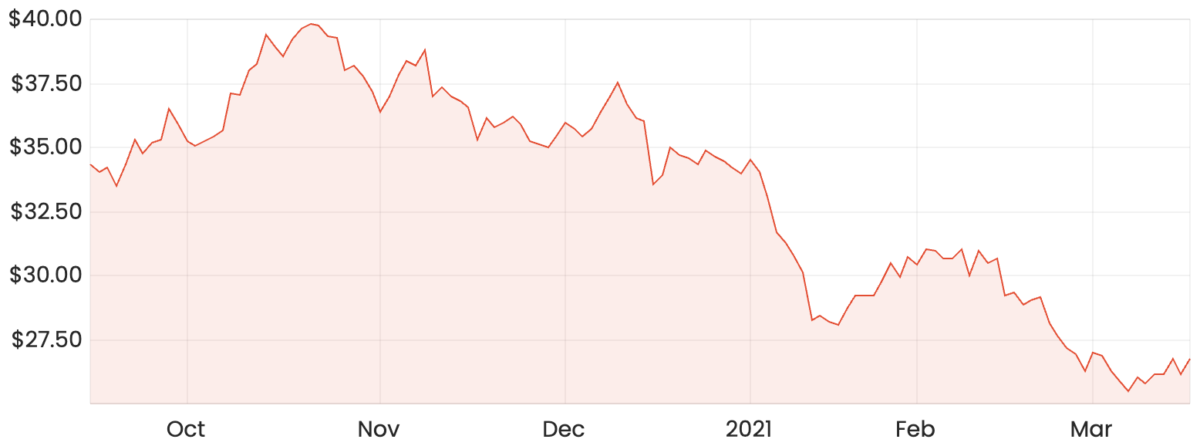The Australian share market, as measured by the S&P/ASX All Ordinaries Index (ASX: XAO) is up 1.8% in the year to date. However, not all companies have delivered positive returns in 2021.
Here are two ASX growth shares that are down 20% or more so far this year.
Kogan Ltd (ASX: KGN)
The Kogan share price is down 26.8% in 2021. Kogan.com is one of Australia’s most popular online-only retailers with business divisions covering an extensive range of products and services.
KGN share price

Kogan also offers its private label products across brands including Kogan, Ovela, Fortis, Vostok and Komodo. Sales of private label brands typically generate higher profit margins than third party brands such as Apple or Samsung.
Kogan recently purchased leading New Zealand online retailer Mighty Ape. Mighty Ape is best known for offering gaming and toy products. Highlighting the strength of Kogan’s balance sheet, the acquisition was funded entirely from cash on its balance sheet.
Kogan dropped its HY21 results on 26 February. The report revealed why Kogan is considered a growth share, as revenue grew 88.6% to $414 million, adjusted earnings before interest, tax, depreciation and amortisation (EBITDA) rose 184.4% to $51.7 million, and statutory net profit after tax (NPAT) increased by 164.2% to $23.6 million.
The aforementioned triple-digit EBITDA and NPAT growth rates were clearly not high enough to meet expectations, as the market pummeled the share price 10% lower on the day.
In my view, Kogan’s current price-earnings ratio (P/E) of 33.8x does not seem unreasonable given the current levels of growth the business is generating. That said, I am an Amazon Prime member and feel that over time Amazon could end up eating Kogan’s lunch.
Altium Limited (ASX: ALU)
Printed circuit board (PCB) software developer, Altium, has had a rough year to date. At the time of writing, Altium’s share price has fallen 22.57% in 2021.
ALU share price

Per Altium’s corporate website, “A printed circuit board (PCB) is an electrical circuit whose components and conductors are contained within a mechanical structure”. Altium should be well placed to ride the wave of the Internet of Things (IoT) megatrend. Click here to read Cathryn’s explainer of what IoT means and how Altium stands to gain.
Perhaps underlying the market’s growth expectations for Altium, the share price dropped almost 5% after releasing its HY21 results. While Altium grew its subscriber base by 12%, revenue declined 4% to US$80 million. EBITDA and NPAT contracted by 17% and 15%, respectively, in turn to US$30.7 million and US$19.7 million. Altium explained that the second wave of COVID-19 and transition towards its cloud-based platform, Altium 365, weighed on the group’s performance.
Based upon Altium’s reported FY20 normalised earnings of 42.45 US cents per share, Altium currently trades on a normalised P/E of 48.8x.
Although the first half result was not great, I think Altium is certainly a great growth company to consider for long term investors.




